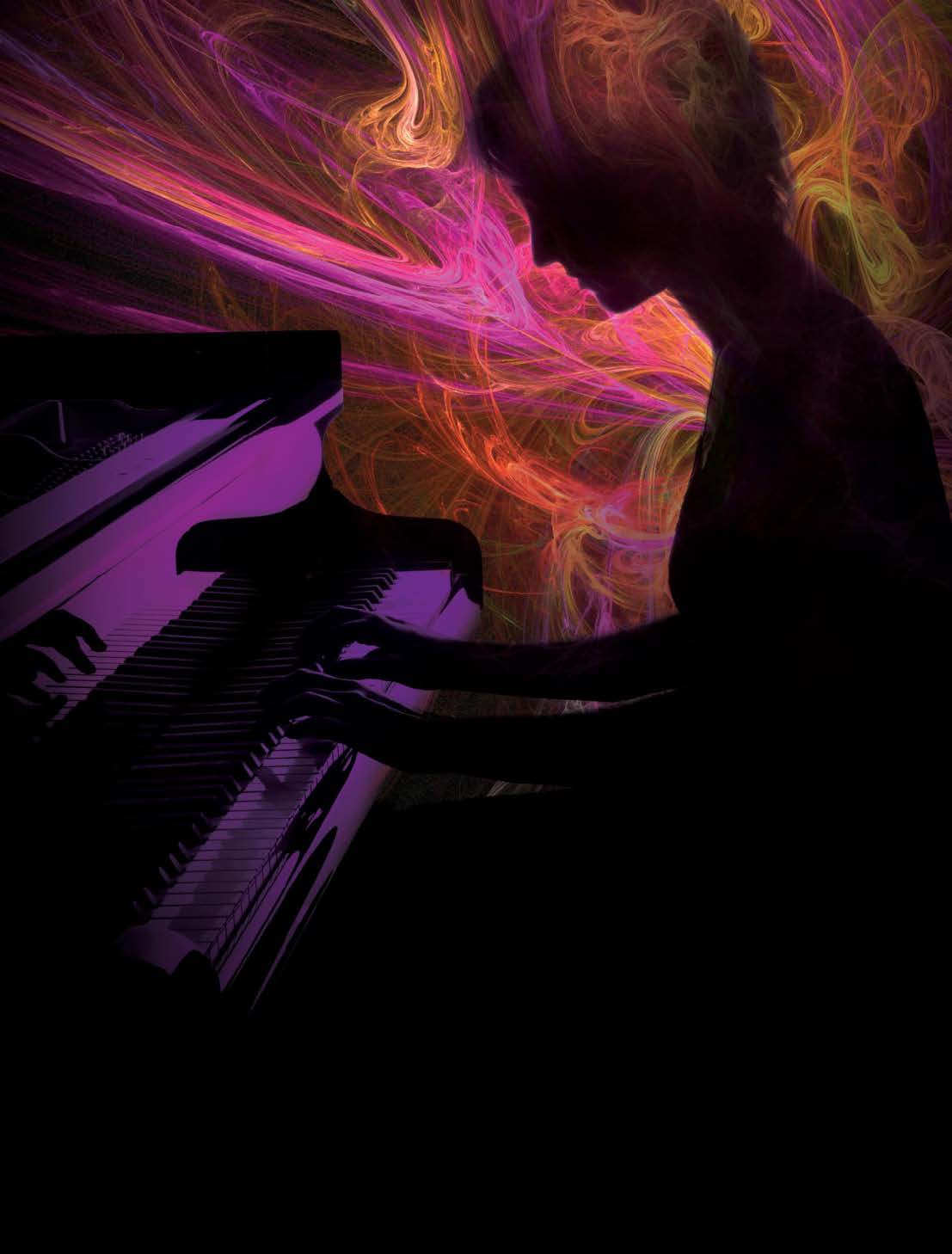
Leading regional musical organizations collaborated in a distinctive chamber music event on February 2, 2018, to help raise awareness of the benefits of music in therapy. The Chattanooga-based nonprofit organization, Music Therapy Gateway in Communications (MTGIC), initiated the innovative series of educational concerts and informational lectures in 2013, which has now become a yearly event. Grant funding from the Tennessee Arts Commission has supported each concert, enabling admission to be free of charge. Erlanger Health System, Orange Grove Center, Exceptional Parent Magazine, the University of Tennessee College of Medicine Chattanooga, and the University of Tennessee at Chattanooga's Department of Performing Arts sponsored this year's event.
A performance of Robert Schumann's piano quartet in E flat, op. 47 was the focal work for the first half of the concert, which took place in the Roland Hayes concert hall on the UTC campus. The musicians were Dr. Martha Summa-Chadwick, piano; Mark Reneau, violin; Dr. Josh Holritz, viola; and Heather Smith, cello. This piece was composed in 1842 during Schumann's "year of chamber music," as his manic compositional drive focused solely on that genre. Schumann, who was afflicted with what would probably be diagnosed today as a severe form of bipolar disorder, wrote much of his music with the help of his imaginary alternate personalities, Florestan (passionate and outgoing) and Eusebius (dreamy and inward).
Dr. Nikolasa Tejero, clarinet, joined the musicians on stage during the second half of the program in the lighter works by Paquito D'Rivera, Steve Reich, and Astor Piazzolla. These works demonstrated the effectiveness of music in encouraging the body to move with rhythm, making it difficult not to tap a finger or toe along with the music. For example, Reich turned clapping into music by using a strict canon pattern in one musical measure made up of twelve eighth notes.
Dr. Tejero clapped in a fixed pattern while Dr. Summa-Chadwick moved out of unison by one beat at a time until the cycle was completed and they were back in unison. In an interview given early in his career, Reich confirmed that the piece was written to create a piece of music that would need no instruments beyond the human body.
As with the previous annual concerts in the "Chamber Music for Body and Soul" series, works by a composer who had a neural affliction shared the program with forms of the dance and upbeat rhythms, giving the audience a broader view of the positive aesthetic and health benefits of music. The concert format was designed to entertain and also educate the audience about how music is a direct conduit to the brain and central nervous system. MTGIC Executive Director Dr. Martha Summa-Chadwick gave a pre-concert lecture, along with certified music therapist Katherine Goforth Elvard. The pair discussed the evidence-based science of music in the brain and offered examples of how this knowledge can be utilized therapeutically to help patients with motor, speech, and cognition challenges. The evening's musical selections were also discussed to explain the reasons for choosing each work.
In coordination with the concert, additional lectures have been presented regionally in an educational outreach component to all interested therapeutic, medical, educational, and family care organizations. Advocating both in the concert hall and directly in the medical community reaches many more individuals and organizations about the scientific and practical applications of music for health. Individuals with medical challenges such as autism, cerebral palsy, stroke, Parkinson's disease and many other conditions can greatly benefit when rhythm and music are directed to the brain. The specific application of music and rhythm can redirect damaged neural networks to help improve a nonmusical behavior (such as gait, executive functioning, attention span, and speech) for better results in therapy and education.
Dr. Summa-Chadwick also offers a solo piano lecture-concert, available on request, which is designed to educate listeners about music and the brain. "Tales of the Neural Tango" is a unique combination of concertizing, media, and lecture presentation in a program that is slightly over an hour in length. Audiences learn how the brain responds to music with a blend of discussion and experiential performance examples of classical and popular compositions. For more information about the concert series or any of MTGIC's other projects, contact Dr. Summa-Chadwick at the MTGIC website (mtgic.org) or at her personal website (marthasumma.com). •